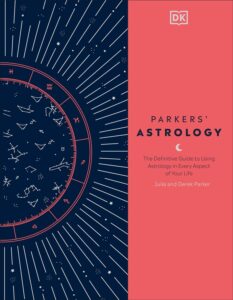The Moon, Earth’s closest celestial companion, casts a mystical and profound astrological influence. Often referred to as the “Lady of the Night,” its ever-changing phases and silent presence have long captivated the imagination of stargazers and astrologers throughout human history.

Representing the rhythms of nature and the tides of human emotion, the Moon’s astrological symbolism is closely tied to its role as the guardian of the subconscious, intuition, and the ever-shifting currents of life. It is considered a feminine, receptive, and nurturing celestial body, embodying the qualities of empathy, sensitivity, and the ability to attune oneself to the subtle ebbs and flows of the psyche.
Rulership
♋︎
In the celestial realm of astrology, the Moon holds dominion over the zodiac sign of Cancer, a cardinal water sign. As the ruling celestial body of Cancer, the Moon lends its intuitive, nurturing, and emotionally attuned qualities to those born under this zodiac sign, instilling a deep connection to the rhythms of the soul and the sanctity of home and family.
Aspects and Interpretations
☌ The Moon in Conjunction with Other Planets: This aspect can indicate a blending of emotional energies, with the Moon amplifying the intuitive, nurturing, and subconscious expressions related to the planet involved, fostering emotional attunement and sensitivity.
△ The Moon in Trine or Sextile Aspect: These harmonious aspects suggest a smooth flow of lunar energy, facilitating emotional security, intuitive insights, and the ability to attune to the rhythms of life with grace and understanding.
☐ The Moon in Square or Opposition Aspect: These challenging aspects can indicate struggles with emotional volatility, oversensitivity, or a tendency towards moodiness or insecurity, requiring the development of emotional resilience and a balanced approach to one’s inner world.
Areas of Influence
The Moon governs various spheres of life, casting its mystical influence on the following domains:
Emotions and Sensitivity: The Moon represents the depths of human emotion, influencing our ability to feel, empathize, and attune to the subtleties of the heart and soul.
Nurturing and Caregiving: This celestial body is associated with the nurturing and protective instincts, shaping our approach to caregiving, creating a sense of emotional security, and tending to the needs of others.
Intuition and Subconscious: The Moon symbolizes the realms of intuition, the subconscious mind, and the ability to access the wisdom of our inner selves, guiding us through the mysteries of life.
Cycles and Rhythms: When expressed positively, the Moon can attune us to the natural rhythms and cycles of life, fostering an understanding of the ever-changing tides of growth, transformation, and renewal.
Home and Family: The Moon also influences our connection to our roots, our sense of belonging, and the importance we place on creating a nurturing home and family environment.
The Moon in Natal Charts
In an individual’s natal chart (the astrological chart calculated at the moment of birth), the placement of the Moon can reveal profound insights about their emotional nature, intuitive abilities, and the way they navigate the ever-shifting currents of the psyche. The sign, house position, and aspects of the Moon can influence an individual’s emotional sensitivity, nurturing instincts, and the way they attune to the rhythms and cycles of life.

The Moon is an astrological force that symbolizes our innate connection to the depths of emotion, intuition, and the rhythms of life. By understanding the influence of the Moon in astrology, individuals can gain valuable insights into their emotional landscapes, nurturing instincts, and the ability to attune to the mystical currents that ebb and flow within the soul.
Hey there! We hope you love our fitness programs and the products we recommend. Just so you know, Symku Blog is reader-supported. When you buy through links on our site, we may earn an affiliate commission at no extra cost to you. It helps us keep the lights on. Thanks.
Disclaimer: The information provided in this discussion is for general informational and educational purposes only. It is not intended as medical or professional advice. Only a qualified health professional can determine what practices are suitable for your individual needs and abilities.

